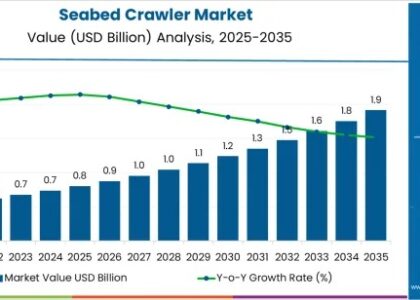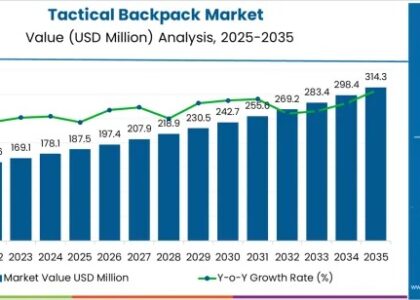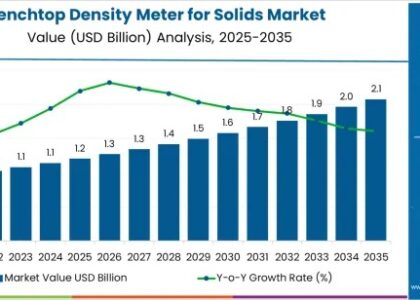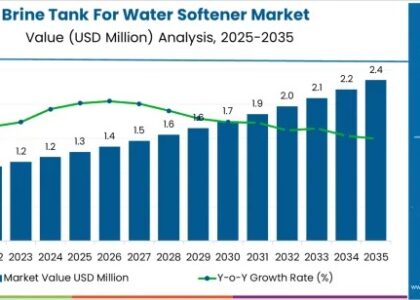In 2021, the global hemophilia treatment market size is expected to be valued around US$ 11.1 billion. However, with a fast growing hemophilia patient pool globally and innovations in hemophilia treatment approaches, overall demand for hemophilia treatment is expected to rise at a 4.8% CAGR throughout the projection period, achieving a valuation of US$ 17.92 Billion by the end of 2032.
Hemophilia therapy has improved dramatically in recent years due to the introduction of new products. In addition, several government and non-government groups are stepping forward to raise awareness of hemophilia symptoms, diagnosis, and treatment.
The high prevalence of hemophilia drives the significant need for quality hemophilia treatment. As a result, several countries are developing creative techniques to improve access to high-quality care for hemophiliacs. For example, innovative methods have been created in Germany to improve the monitoring of these and other associated disorders.
Request a report sample to gain comprehensive insights@ https://www.futuremarketinsights.com/reports/sample/REP-GB-14324
Furthermore, in recent years, awareness of the need for early-stage diagnosis and treatment and its potential impact has increased dramatically throughout European countries, driving demand for a product that would greatly simulate market income. The high prevalence of hemophilia drives the significant need for quality hemophilia treatment.
| Attributes | Details |
| Hemophilia treatment Market CAGR (2022 to 2032) | 4.8% |
| Hemophilia treatment Market (2032) | US$ 17.92 Billion |
| Hemophilia treatment Market Attraction | Increasing hemophilia inhibitors, introduction of new drug launches and governments initiating R&D programs are the major driving factors. |
The high expense of hemophilia therapy, on the other hand, may have a negative impact on market growth. According to the National Hemophilia Foundation, the average cost of hemophilia treatment is over USD 300,000 per year, which has a substantial influence on operation margins, especially in today’s capitated reimbursement environment.
The emergence of the COVID-19 pandemic slightly impacted the hemophilia treatment market negatively, owing to disruption in the global supply chain and logistics. Furthermore, the impact of the coronavirus outbreak on the industry peaked during early 2020, wherein patients suffering from such ailments were at a higher risk of suffering from coronavirus as they were more prone to infectious diseases.
For Any Queries Related With The Report, Ask an Analyst@ https://www.futuremarketinsights.com/ask-question/rep-gb-14324
Key Takeaways:
- Hemophilia A, a disease segment accounting for around 82% of the total revenue share, dominated the market in 2021.
- In 2021, the adult patient category was worth USD 6,898 million. Hemophilia is becoming more common in the adult population.
- In 2021, the prophylaxis segment was worth USD 7,998 million. This preventive medication helps to decrease hemophilic arthropathy and disability and the need for orthopedic surgery, resulting in a better quality of life.
- During the forecast period, the injectables segment is predicted to grow at a rate of over 4.9 percent due to the effective method of drug administration.
Competitive Landscape:
Some of the major key players in hemophilia treatment markets are Bayer Healthcare, Biogen, Biotest AG, CSL Behring, Ferring B.V., Genentech, Kedrion, Novo Nordisk, and Octapharma, among others.
Major important players have used advanced technologies to meet the needs of consumers and gain a substantial market share.
- Novo Nordisk received FDA approval for its biologics license application for Esperoct in February 2019. This medication is intended to reduce the frequency of bleeding episodes in children and adults with congenital factor VIII deficiency. This launch aided the corporation in introducing new items, giving it a competitive advantage.
- Valoctocogene roxaparvovec (valrox) is a novel hemophilia gene therapy treatment developed by BioMarin that eliminates all bleeds and injects blood clotting factor VIII (FVIII) in patients, is expected to get FDA clearance in 2020.
- Bayer Healthcare gained FDA approval for a new prolonged half-life hemophilia treatment in August 2018. A product for patients aged 12 and up. Jivi is a rFVIII replacement therapy that has been licensed for the treatment of bleeding. This approval aided the corporation in broadening its product offering globally.
Contact Sales for Further Assistance in Purchasing this Report@ https://www.futuremarketinsights.com/checkout/14324
Key Segments
By Disease:
- Hemophilia A
- Hemophilia B
By Patient:
- Paediatric
- Adult
By Treatment:
- Prophylaxis
- On Demand
By Therapy:
- Factor Replacement Therapy
- Non-factor Replacement Therapy
By Drug Class:
- Vasopressin
- Coagulation Factor
By Route of Administration:
- Injectable
- Nasal Spray
About Future Market Insights, Inc.
Future Market Insights, Inc. is an ESOMAR-certified business consulting & market research firm, a member of the Greater New York Chamber of Commerce and is headquartered in Delaware, USA. A recipient of Clutch Leaders Award 2022 on account of high client score (4.9/5), we have been collaborating with global enterprises in their business transformation journey and helping them deliver on their business ambitions. 80% of the largest Forbes 1000 enterprises are our clients. We serve global clients across all leading & niche market segments across all major industries.
Contact:
Future Market Insights, Inc.
Christiana Corporate, 200 Continental Drive,
Suite 401, Newark, Delaware – 19713, USA
T: +1-845-579-5705
For Sales Enquiries: sales@futuremarketinsights.com
Browse All Reports: https://www.futuremarketinsights.com/reports
LinkedIn| Twitter| Blogs





